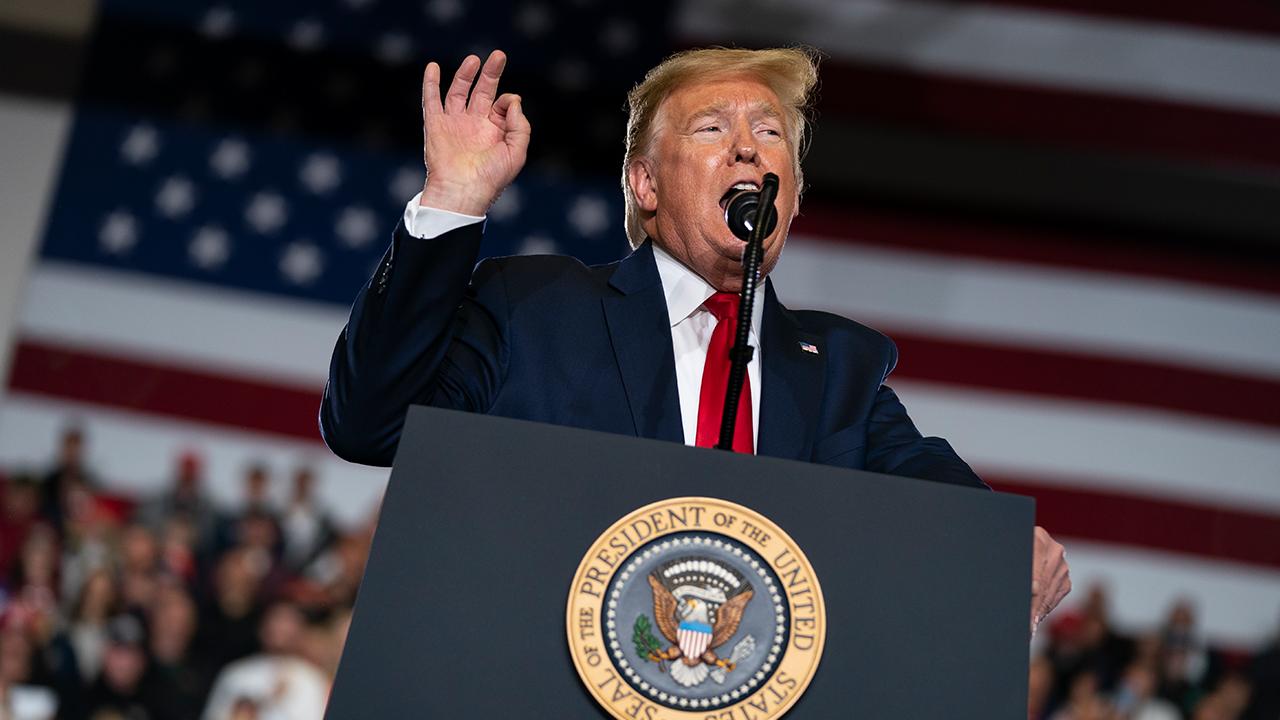Opioid maker Mallinckrodt nears bankruptcy: Report
The Ireland-based drugmaker is weighing a chapter 11 filing covering its U.S. generics business
Drugmaker Mallinckrodt PLC has begun confidential discussions with creditors and is considering placing its U.S. generic-drug business into bankruptcy to address coming debt maturities and liabilities stemming from the opioid crisis, according to people familiar with the matter.
The Ireland-based drugmaker is weighing a chapter 11 filing covering its U.S. generics business, hoping to resolve claims from hundreds of state and local governments stemming from the cost of combating opioid addiction, people familiar with the matter said.
The company declined to comment. Mallinckrodt, one of the largest opioid makers in the U.S., previously acknowledged the risk of a bankruptcy over allegations it and other drugmakers misrepresented the health risks associated with the powerful painkillers they made.
WALGREENS EXECS HID CUSTOMER MEDICATION COMPLAINTS: REPORT
Last year, Mallinckrodt hired restructuring experts and drew down the remaining $95 million of availability on its revolving credit facility, a common financial maneuver among companies in advance of a bankruptcy.
Mallinckrodt is among several opioid manufacturers and distributors set to go to trial next month over allegations brought by New York Attorney General Letitia James related to the marketing and distributing of opioids.
The generics division reported $545 million in revenue through the first three quarters last year. Mallinckrodt is scheduled to report fourth-quarter earnings Tuesday.
In November, Mallinckrodt completed an out-of-court exchange led by bondholder Deerfield Partners LP that shaved off close to $400 million from the company's nearly $6 billion of total debt.
The company could make another attempt to reduce debt through another out-of-court exchange and avoid a chapter 11 filing, according to people familiar with the matter. Given the size of Mallinckrodt's opioid liabilities and its debt coming due, a bankruptcy filing is more likely, these people said.
A potential bankruptcy of the generics unit wouldn't cover the bulk of Mallinckrodt's global business, they said.
OXYCONTIN MAKER PURDUE PHARMA STARTS AD CAMPAIGN FOR CLAIMS
Mallinckrodt and other drug manufacturers, distributors and retail pharmacies face thousands of lawsuits accusing them of helping spark the opioid crisis with misleading marketing and by failing to stop excessive amounts of drugs from flooding the country. Mallinckrodt has denied the allegations. Last year, the company reached a settlement worth about $30 million to avoid a landmark opioid trial in Ohio.
Two other opioid manufacturers, Purdue Pharma LP and Insys Therapeutics Inc., have sought chapter 11 protection to deal with government claims related to the drug epidemic. Purdue has proposed turning itself over to creditors in bankruptcy and paying at least $3 billion from its controlling family to fight addiction. Insys sold its rights to its flagship opioid product and other drug assets and is winding down its affairs.
Mallinckrodt, which has U.S. headquarters in St. Louis but is domiciled in Ireland, makes branded and generic medicines as well as raw materials for rivals' products. It has manufactured opioids for years, and from 2006 to 2012 was the country's single largest manufacturer of prescription opioid pills, according to federal data.
In August, Mallinckrodt suspended plans to spin off the generics division, citing unfavorable market conditions and increasing uncertainties around opioid litigation.
GET FOX BUSINESS ON THE GO BY CLICKING HERE
The company had announced a board and executives to lead the unit, which would have retained the Mallinckrodt name. Mallinckrodt said it still planned to separate the company's generics division from its branded specialty products, which sells items such as the anti-inflammatory treatment Acthar Gel.
In September, Mallinckrodt changed its severance-package policy to allow for departing executives of the drug company to receive lump-sum payouts instead of installment payments, and ensuring the policy endures should it change ownership structure, such as liquidating or reorganizing, according to securities filings.




















